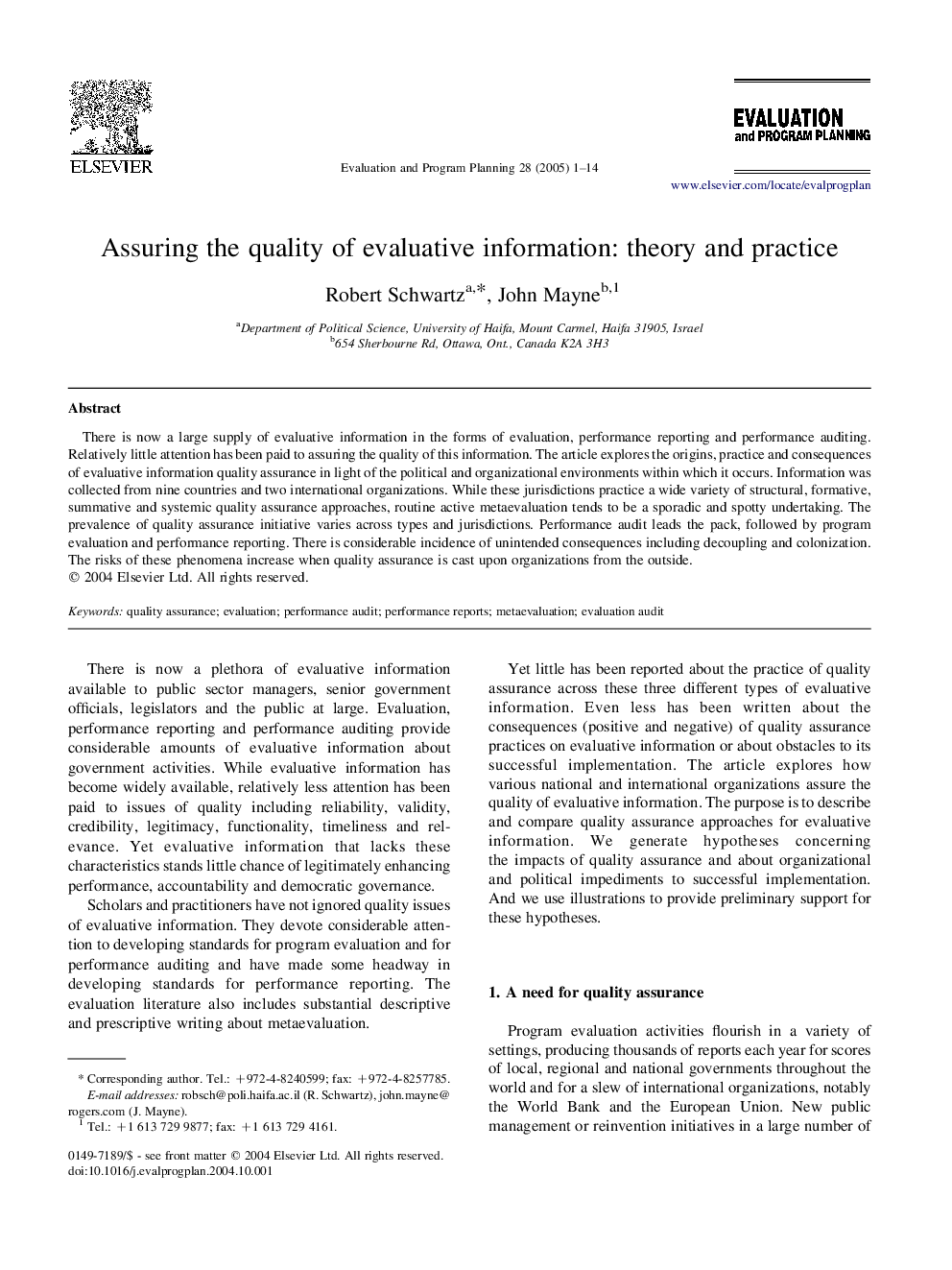| Article ID | Journal | Published Year | Pages | File Type |
|---|---|---|---|---|
| 10300578 | Evaluation and Program Planning | 2005 | 14 Pages |
Abstract
There is now a large supply of evaluative information in the forms of evaluation, performance reporting and performance auditing. Relatively little attention has been paid to assuring the quality of this information. The article explores the origins, practice and consequences of evaluative information quality assurance in light of the political and organizational environments within which it occurs. Information was collected from nine countries and two international organizations. While these jurisdictions practice a wide variety of structural, formative, summative and systemic quality assurance approaches, routine active metaevaluation tends to be a sporadic and spotty undertaking. The prevalence of quality assurance initiative varies across types and jurisdictions. Performance audit leads the pack, followed by program evaluation and performance reporting. There is considerable incidence of unintended consequences including decoupling and colonization. The risks of these phenomena increase when quality assurance is cast upon organizations from the outside.
Keywords
Related Topics
Health Sciences
Medicine and Dentistry
Public Health and Health Policy
Authors
Robert Schwartz, John Mayne,
